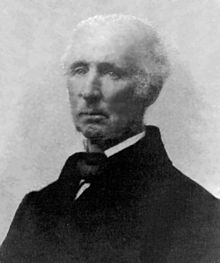Richard Hawes | |
|---|---|
 | |
| 2nd Confederate Governor of Kentucky | |
| In office May 31, 1862 – April 9, 1865 | |
| Preceded by | George W. Johnson |
| Succeeded by | Abolished (end of Civil War) |
| Member of the U.S. House of Representatives from Kentucky's 10th district | |
| In office March 4, 1837 – March 3, 1841 | |
| Preceded by | Chilton Allan |
| Succeeded by | Thomas Francis Marshall |
| Personal details | |
| Born | February 6, 1797 Caroline County, Virginia, U.S. |
| Died | May 25, 1877 (aged 80) Paris, Kentucky, U.S. |
| Political party | Whig Democratic |
| Spouse | Hetty Morrison Nicholas |
| Relations | Albert Gallatin Hawes (brother) Aylett Hawes (uncle) Aylett Hawes Buckner (uncle) |
| Alma mater | Transylvania University |
| Profession |
|
Richard Hawes Jr. (February 6, 1797 – May 25, 1877) was a United States representative from Kentucky and the second Confederate Governor of Kentucky. He was part of the politically influential Hawes family. His brother, uncle, and cousin also served as U.S. Representatives, and his grandson Harry B. Hawes was a member of the United States Senate. He was a slaveholder.[1]
Hawes began his political career as an ardent Whig and was a close friend of the party's founder, Henry Clay. When the party declined and dissolved in the 1850s, Hawes became a Democrat, and his relationship with Clay cooled.
At the outbreak of the Civil War, Hawes was a supporter of Kentucky's doctrine of armed neutrality. When the Commonwealth's neutrality was breached in September 1861, Hawes fled to Virginia and enlisted as a brigade commissary under Confederate general Humphrey Marshall. When Kentucky's Confederate government was formed in Russellville, Hawes was offered the position of state auditor, but declined. Months later, he was selected to be Confederate governor of the Commonwealth following George W. Johnson's death at the Battle of Shiloh.
Hawes and the Confederate government traveled with Braxton Bragg's Army of Tennessee, and when Bragg invaded Kentucky in October 1862, he captured Frankfort and held an inauguration ceremony for Hawes. The ceremony was interrupted, however, by forces under Union general Don Carlos Buell, and the Confederates were driven from the Commonwealth following the Battle of Perryville. Hawes relocated to Virginia, where he conducted a Confederate government in exile for Kentucky and continued to lobby President Jefferson Davis to attempt another invasion of the state.
At the end of the war, the Confederate government of Kentucky in exile ceased to exist, and Hawes returned to his home in Paris, Kentucky. He swore an oath of allegiance to the Union, and was allowed to return to his law practice. He was elected county judge of Bourbon County, a post he held until his death in 1877.
- ^ Weil, Julie Zauzmer; Blanco, Adrian; Dominguez, Leo (January 20, 2022). "More than 1,700 congressmen once enslaved Black people. This is who they were, and how they shaped the nation". Washington Post. Retrieved January 30, 2022.